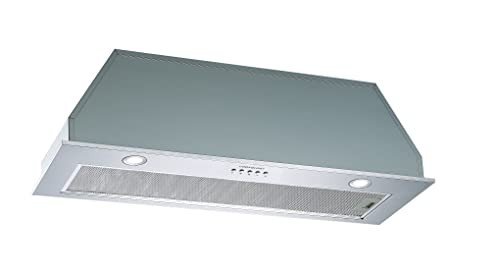Guide To Cooker Extractor Hood: The Intermediate Guide Towards Cooker …
페이지 정보
작성자 Lowell 작성일 25-11-12 19:10 조회 4 댓글 0본문
Understanding Cooker Extractor Hoods: A Comprehensive Guide
In modern kitchens, the cooker extractor hood is more than just an accessory; it is a crucial component that ensures a comfortable and clean cooking environment. This post delves deep into what cooker extractor hoods are, their functions, numerous types, essential factors to consider for selection, and frequently asked questions. Whether house owners are refurbishing their kitchens or just looking to update their cooking appliances, comprehending the function of an extractor hood can help make notified decisions.

What is a Cooker Extractor Hood?
A cooker extractor hood, also understood as a range hood or kitchen hood, is a device set up over the cooktop or stove. Its primary function is to aerate the kitchen by getting rid of airborne grease, smoke, steam, and smells produced during cooking. This not just improves air quality but also helps in maintaining the kitchen's tidiness.
Functions of Cooker Extractor Hoods
The main functions of an extractor hood consist of:
- Filtration: Removing airborne particles and smells through filters.
- Ventilation: Providing fresh air by drawing in stale air, grease, and smoke.
- Lighting: Offering illumination over the cooking area for better exposure.
- Heat Regulation: Preventing excess heat from collecting in the kitchen.
Kinds Of Extractor Hoods
Cooker extractor hoods come in different types, each fit for different kitchen designs and cooking styles. Below is a table summarizing the various types:
| Type | Description | Pros | Cons |
|---|---|---|---|
| Wall-Mounted | Attached to the wall above the stove. | Effective suction, space-saving | Requires wall space, installation can be intricate |
| Under-Cabinet | Fits below kitchen cabinetry. | Discreet, convenient for small areas | May have lower suction power |
| Island | Suspended from the ceiling, ideal for kitchen islands. | Visual appeal, efficient ventilation | More expensive, may require expert installation |
| Downdraft | Constructed into the cooktop, increases throughout use and retracts when not needed. | Smooth design, conserves overhead space | Typically less reliable than traditional hoods |
| Filterless | Utilizes sophisticated filtration innovation, minimizing grease and smells without traditional filters. | Less upkeep, longer life expectancy | Usually greater rate point, may not fit all kitchen designs |
Secret Considerations for Choosing a Cooker Extractor Hood
When selecting a cooker extractor hood, a number of aspects need to be thought about to make the most of efficiency and guarantee suitability for individual kitchen needs:
1. Size
Ensure the hood is at least as wide as the cooktop. Optimal sizing is necessary for efficient air capture. For a much better fit, consider:
- Standard cooktops: 30 inches hoods
- Expert cooktops: 36 inches or bigger hoods
2. Suction Power (CFM)
The airflow of the hood is measured in Cubic Feet per Minute (CFM). A greater CFM indicates much better ventilation, which is crucial for heavy cooking.
Advised CFM:
- Light cooking (e.g., boiling, steaming): 200-300 CFM
- Moderate cooking (e.g., sautéing, frying): 300-600 CFM
- Heavy cooking (e.g., barbecuing, wok cooking): 600+ CFM
3. Ducted vs. Ductless
- Ducted: Ventilates outside, extremely efficient but needs setup of ductwork.
- Ductless: Filters air and recirculates it back into the kitchen; installation is simpler but might not be as reliable.
4. Sound Level (Sonnes)
Pay attention to the sound level, especially in open-concept homes. Search for hoods that run silently, preferably generating less than 60 decibels on high speed.
5. Design and Aesthetics
Select a hood that matches the general kitchen design. Choices can range from modern stainless-steel to traditional designs that blend seamlessly.
6. Relieve of Maintenance
Think about designs with detachable, dishwasher-safe filters to ease cleaning efforts. Some designs come with filter reminders or indications to inform users when a modification is needed.
Benefits of Installing a Cooker Extractor Hood
Including a cooker extractor hood into the kitchen provides a number of notable advantages:
- Improved Air Quality: Filters and circulates fresh air, decreasing cooking smells.
- Improved Comfort: Minimizes heat and steam retention.
- Cleaner Kitchens: Reduces grease build-up on cabinets and walls.
- Aesthetic Appeal: Modern hoods act as ornamental components.
Frequently Asked Questions (FAQ)
1. How often should I clean my cooker extractor hood?
It is recommended to clean the filters every 1-3 months, depending upon use frequency. Routine cleaning prevents grease accumulation, guaranteeing optimal efficiency.
2. Can I set up a cooker extractor hood myself?
While some models are created for simple DIY installation, complex ductwork or heavy models may need expert setup to ensure security and performance.
3. How do I figure out the best CFM for my kitchen?
Step your cooktop measurements and think about cooking styles. A basic rule is 1 CFM for each 100 BTUs of the stove's maximum heat output.
4. What type of hood is best for a small kitchen?
Under-cabinet hoods or downdraft designs are perfect for small kitchens due to their compact style, conserving valuable space without compromising function.
5. Are all extractor hoods loud?
No, sound levels differ significantly. Search for hoods that provide a higher CFM at lower decibels for a quieter efficiency.
Investing in a correct cooker extractor hood is necessary for developing a cleaner and more comfortable cooking environment. By comprehending the different types, functions, and essential considerations in selecting a hood, house owners can substantially enhance their kitchen experience. With the ideal extractor hood in place, you'll enjoy fresher air, lowered smells, and a more welcoming kitchen area that's as functional as it is elegant.
댓글목록 0
등록된 댓글이 없습니다.
